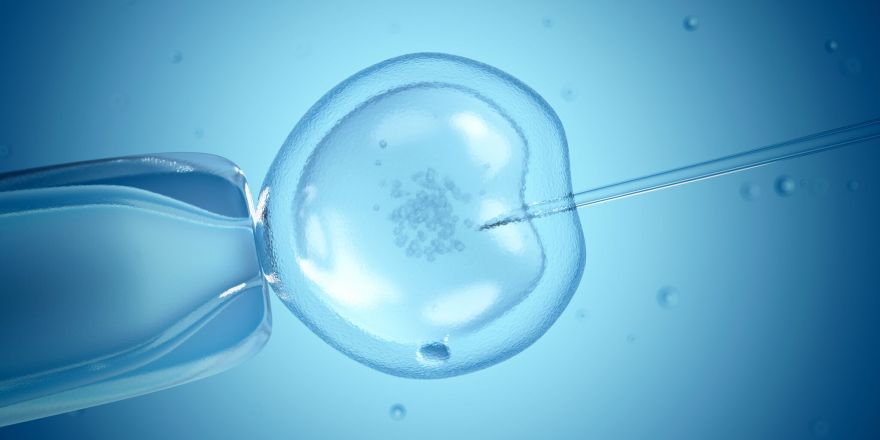Q – When do you know its infertility?
You should get concerned about Infertility whenever a couple is not able to get pregnant or conceive, despite having regular unprotected sex for at least one year and the women is less than 35 years.
Q – When and why to consider IVF considering there is no guarantee and it’s expensive as well?
In vitro fertilization (IVF) is a treatment for infertility in which a woman’s eggs are fertilized by men’s sperm in a laboratory dish. One or more of the fertilized eggs (embryos) are then transferred into the woman’s uterus, where it is hoped they will implant and produce a pregnancy.
IVF is usually considered by the couples who have:
- Absent or blocked fallopian tubes
- Severe male factor infertility
- Advanced reproductive age,
- All other causes of infertility (eg, endometriosis, ovulation disorders, unexplained infertility)
- Ovarian failure
- Need for preimplantation genetic testing
But as these couple cannot get pregnant naturally so IVF is their last hope to get pregnant although it does not guarantee and is expensive too particularly for patients lacking fertility insurance coverage. But due to continued advances in reproductive medicine, in IVF has become a highly successful treatment for infertility.
Q – Can you please share with us how IVF being used to extract large sum by some doctors? How they do it. False promises and the reality?
IVF is an expensive procedure as it involves several steps including ovulation induction, egg retrieval, sperm retrieval, fertilization and embryo transfer. One cycle of IVF can take about two weeks, and more than one cycle may be required. It also involves use of various essential medications including those for ovarian stimulation, oocyte maturation, for preventing premature ovulation and to prepare the lining of your uterus. It also involves blood tests to measure your response to various prescribed medications and various screenings, including, ovarian reserve testing, Semen analysis, Infectious disease screening, uterine cavity exam.
Always remember that it is not necessary to go for IVF just because you have infertility. This is quite common that many patients believe that IVF provides their only chance of having a baby; however, this may not be the case. There are a few absolute indications for needing IVF, such as absent or damaged fallopian tubes, need for preimplantation genetic testing, severe male factor, or unsuccessful attempts with less invasive treatments. If one of these indications does not exist, there are often less invasive, lower cost fertility treatments available that give patients a good chance of success.
Q – Things to keep in mind before going for IVF (the suggestions should be helpful in terms of saving people from not getting duped)?
Couples who are considering IVF should discuss the risks, benefits, and alternatives with their physician before beginning their treatment. Couple should schedule a counseling session with their Reproductive healthcare provider to make better informed decision.
Chose the right IVF clinic. Please keep in mind that a clinic’s success rate depends on many factors, such as patients’ ages and medical issues, as well as the clinic’s treatment population and treatment approaches.
- Ask for detailed information about the costs associated with each step of the procedure.
- Before beginning a cycle of IVF, consider asking important questions, including:
- How many embryos will be transferred? Make sure you and your doctor agree on the number of embryos that will be implanted before they’re transferred.
- What will you do with any extra embryos? Extra embryos can be frozen and stored for future use for many years. All embryos will not survive the freezing and thawing process, although most of them will. Freezing of embryos and using them in future can make future cycles of IVF less expensive and less invasive. You should know that whether the live birth rate from frozen embryos is same as of fresh embryos. You can use the option to donate unused frozen embryos to another couple or a research facility. You might also choose to discard unused embryos. But you should be clear about these.
- How will you handle a multiple pregnancy? If more than one embryo is implanted in your uterus, IVF can result in a multiple pregnancy. So you should consult regarding the risks and further details to make yourself aware of all the aspects.
- What are the complication which can arise in case you use donor eggs, sperm or embryos or a gestational carrier? An experienced trained counselor can help you understand the concerns, such as the legal rights of the donor.
Please also remember that, the chances of giving birth to a healthy baby after using IVF, also depend on various factors, including: Maternal age, Embryo status, Reproductive history, Cause of infertility and Lifestyle factors.
So please talk with your physician about any factors that you have and how they may affect your chances of a successful pregnancy



